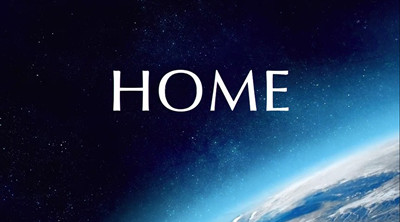Nonetheless, their output dominates the planet.
尽管如此他们的粮食产出还是支配着地球。
In the United States, only three million farmers are left.
美国只剩下三百万农民。
They produce enough grain to feed two billion people.
他们出产的谷物可以养活二十亿人口。
But most of that grain is not used to feed people.
但大部分谷物并非用作食粮。
Here, and in all other industrialized nations,it's transformed into livestock feed or biofuels.
就像其他工业国,谷物用来喂牲口或作生化燃料。
The pocket of sunshine's energy...chased away the specter of drought that stalked farmland.
这束阳光的能量赶走了令土地干旱的幽灵。
No spring escapes the demands of agriculture,which accounts for 70% of humanity's water consumption.
所有泉水都用于农业,它占人类水消耗量的70%。
In nature, everything is linked.
大自然的一切都互相连系。
The expansion of cultivated land and single-crop farming...
耕地的拓张和单一品种的种植。
encouraged the development of parasites.
增加了害虫的肆虐。
Pesticides, another gift of the petrochemical revolution,exterminated them.
石油化工革命带来的杀虫剂把它们杀光。
Bad harvests and famine became a distant memory.
农作欠收和饥荒成为邀远回忆。
The biggest headache now...was what to do with the surpluses engendered by modern agriculture.
眼前最头痛是如何处理现代农业带来的残留。
But toxic pesticides seeped into the air,soil, plants, animals, rivers and oceans.
有毒的杀虫剂渗进空气,泥土、动植物、河流和海洋。
They penetrated the heart of cells...similar to the mother cell that is shared by all forms of life.
它们入侵一切生命赖以生存的细胞核心。
Are they harmful to the humans that they released from hunger?
它们对免于饥饿的人类有害吗?

These farmers, in their yellow protective suits,probably have a good idea.
这些穿着黄色保护衣物的农夫可能有更好的主意。
The new agriculture abolished the dependence on soils and seasons.
新兴农业免除了对土壤和季节的依赖。
Fertilizers produced unprecedented results...
肥料令小片土地。
on plots of land thus far ignored.
出产前所未见的丰富收成。
Crops adapted to soils and climates gave way to the most productive varieties and the easiest to transport.
适应了土地和气候的谷物被产量高和易于运输的品种所取代。
And so, in the last century,three-quarters of the varieties developed by farmers over thousands of years...
于是在上一世纪农民在过去数千年培育的。
Have been wiped out.
四分之三的品种绝种。
As far as the eye can see, fertilizer below, plastic on top.
极目所见,下施肥料,上覆塑料。












